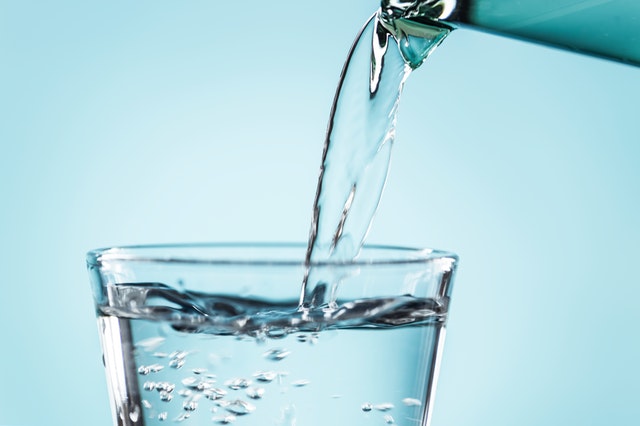Our bodies are made up of 55%-60% water. While we might be able to live for months without food, we would die in a matter of days without water. Even though water is readily available to those of us in America, water is the most common nutritional deficiency in the American population. According to the CDC in their article titled, “Get the Facts: Drinking Water and Intake” U.S. adults consumed an average of 39 oz of water per day (2016). This is only about 5 cups of water. It only takes a small loss of water, that isn’t replaced, to be in a dehydrated state.
Many people live in a constant state of mild dehydration. When we are not consuming enough water to replace the water that is lost to activity, perspiration, and waste removal we become dehydrated. Symptoms of mild dehydration are fatigue, mood changes, over-heating, constipation and cloudy thinking. Cognitive function may even decline with very mild dehydration of 1-2% (Riebl & Davy, 2013). When we reach even higher levels of dehydration, symptoms of light-headedness, headaches, nausea and dizziness occur. If our bodies are not provided the water they need then death will be imminent.
Some of the water that we need comes from the food that we eat and the metabolic processes that take place in our bodies, but we must drink water to get the rest. In the United States we have so many drink options that water is not the drink of choice for many. We have replaced our water intake with coffee, soda, energy drinks and sugary juices. Fox News reported that about 48% of the adults in the United States consume soda every day. With average consumption being more than 2 glasses per day and 64% drink at least one cup of coffee per day (2012). Many of these drinks are diuretics, meaning that we lose more water from our bodies than we gain when we drink them.
It is clearly important that we get enough water in our diets to avoid dehydration and the symptoms that come from it. Try the following steps to increase your water intake and to keep your body hydrated:
- Start your morning with a cup of warm water with a squeeze of lemon and a pinch of sea salt. It will help with digestion and rehydrate you after your rest.
- Carry a water bottle with you each day so that you have something to sip on when you get thirsty.
- Drink a glass of water 30 minutes before each meal. It will help with satiety and digestion.
- Replace your sugary drinks with sparkling mineral water and a squeeze of lemon or lime.
- When consuming diuretic beverages, such as alcohol, soda and coffee, add 12-16 oz of additional water for each 8 oz of diuretic that you drink.
Following these simple steps will get you on your way to feeling your best and avoiding the symptoms and health issues associated with dehydration.
References
Get the Facts: Drinking Water and Intake | Nutrition | CDC. (2016, August 9). Retrieved June 1, 2019, from https://www.cdc.gov/nutrition/data-statistics/plain-water-the-healthier-choice.htm
Riebl, S. K., & Davy, B. M. (2013). The Hydration Equation: Update on Water Balance and Cognitive Performance. Retrieved June 1, 2019, from https://www.ncbi.nlm.nih.gov/pmc/articles/PMC4207053/
Half of Americans drink soda every day. (2012, July 25). Retrieved June 1, 2019, from https://www.foxnews.com/health/half-of-americans-drink-soda-every-day
